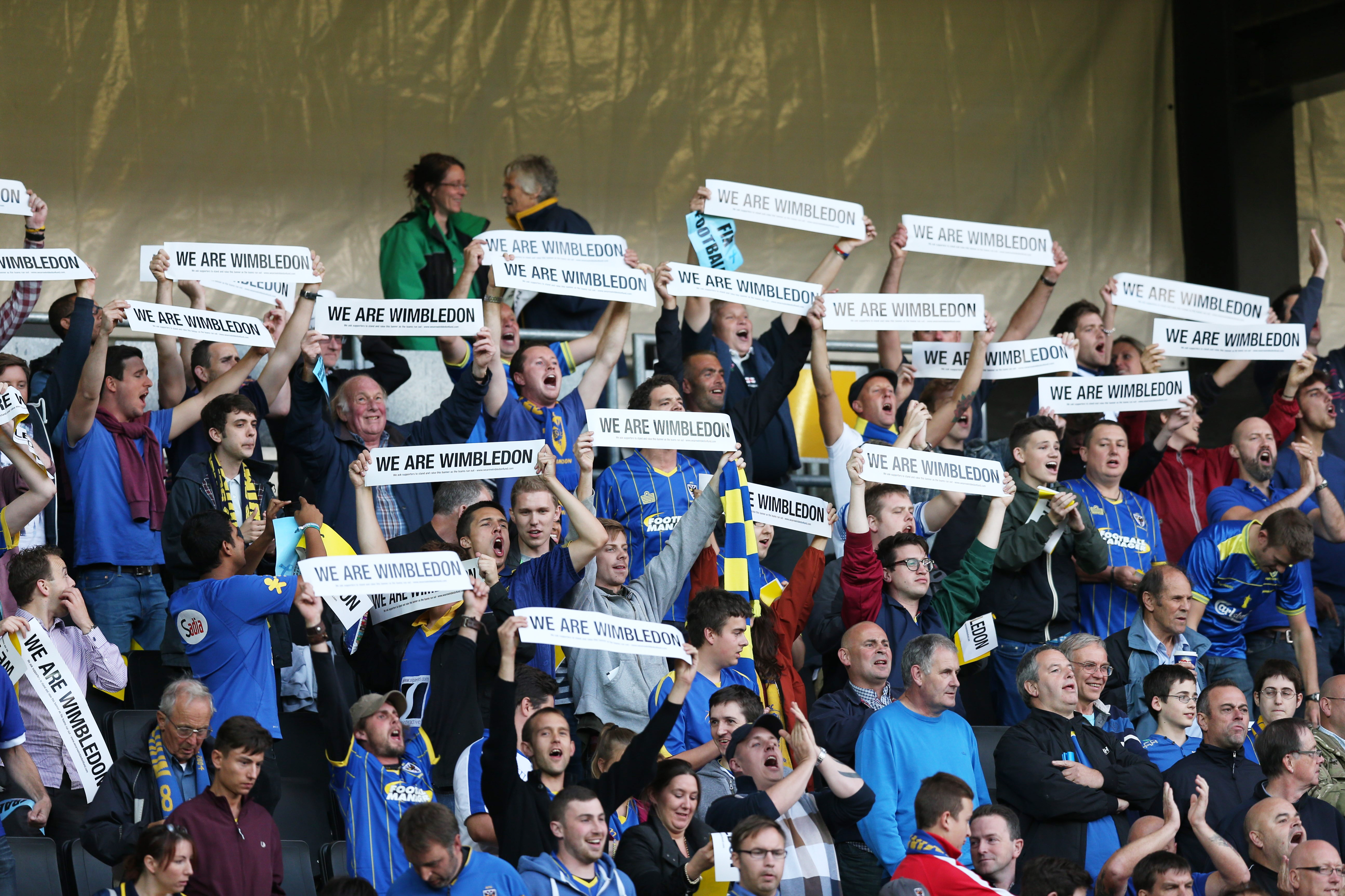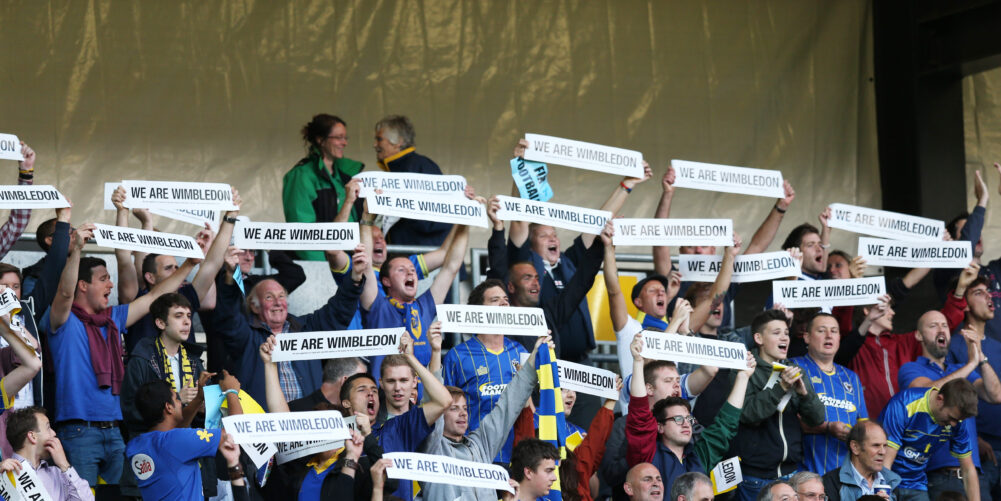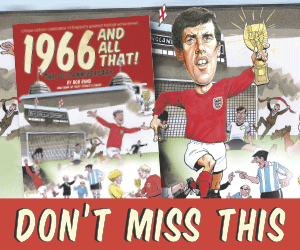
by Jimmy Keoghan
That owners make decisions which some supporters find unpalatable is one of the few immutable truths of the game. There is a suspicion among most fans, however unfair, that owners aren’t true supporters and that the decisions they make are motivated not by a love of the club but instead by a desire to increase the value of their investment.
Barring some financial calamity or hugely unpopular decision, for most fans the disagreements that intermittently appear rarely mutate into open rebellion. Instead, they become the subject matter of post-match rants in the pub, angry articles to a fanzine or acerbic posts on supporter forums.
Beneath the angst though, there is often the tacit acceptance that the ‘moneymen’ are necessary. Because what’s been the alternative really? After all, English football has been run in this way for a very long-time.
But is this the case anymore? Over the past few decades a new way of thinking has emerged that has challenged the long-held dominance of the private owner. And it’s a way of thinking that has proven to be particularly attractive to clubs playing non-league football.
Back in 1992, most of the media was focused on the arrival of Sky and the Premiership, salivating over the influx of money, the promise of glamour and the hairiness of Richard Keys’ arms. Few writers, or fans for that matter, took notice of a financial crisis engulfing Northampton Town.
Facing liquidation and with no new investors on the horizon, the supporters there organised to help the club out of its financial hole. Although fans of all colours had been doing this at their clubs since the professional game’s inception, they’d always done so on the understanding that nothing would be given back in return. It was a one-way-street that suited both parties, with each believing that supporters had no role to play in the running of the club.
But this time things would be different. Scarred by the board’s response following a previous campaign to help the club out financially, after which the fans generosity had been rewarded by the gift of six blazer badges, the supporters demanded that this time they would get something better in return.
A democratically structured supporters trust was created that pooled individual investments from members and then used this money to buy a stake in Northampton. Through this, the Trust was able to become part of the financial solution at the club, gaining two positions on the board in the process.
Since then, with the backing of Supporters Direct, this novel concept has proliferated across football and there are now 104 supporters trusts across the game. Although not all own shares, many do. And there are even some that possess a majority shareholding, such as the trusts at AFC Telford United, Chester FC and FC United of Manchester.
These are supporter organisations that have established brand-new clubs (AFC Wimbledon, FC United of Manchester, AFC Liverpool) saved others from going to the wall (Lewes FC) and resurrected several that otherwise might have disappeared (Chester FC, Scarborough Athletic FC, AFC Telford United).
“In its short-life, the supporter ownership model has had a real impact upon non-league football, shaping its appearance in a more profound way that is the case within the Football League and the Premiership. It’s become a tenable alternative for how to own and run a football club, successfully challenging the private model that has dominated the game for so long” says Andy Walsh, General Manager of FC United of Manchester.
Although not exclusively the case, supporter ownership has tended to be the product of financial crisis. Either a club has been facing liquidation and the fans have stepped in or a club has gone bust and the supporters have created a new one of their own. It’s perhaps unsurprising then that most trust owned clubs have embraced financial sustainability as one of their principle maxims.
“The Trust’s aim here at Lewes is to ensure that the club is profitable and free from dependence upon donations or investment outside our membership” says Stuart Fuller, Director at Lewes FC. “It’s an approach in part created by the circumstances in which we took control” he continues, “the club was in danger of going under following years of financial mismanagement, so we are acutely aware of how destructive debt can be.”
Lewes FC is far from alone in its approach to financial sustainability. Other clubs, such as AFC Telford, FC United of Manchester and AFC Wimbledon have similar stories to tell.
“Whether it’s because there is a collective decision making process or because, unlike a private owner, supporters view the long-term survival of the club as being more important than short-term success, fan ownership has tended to become synonymous with a more conservative approach to finance” says Kevin Rye of Supporters Direct.
But a will to balance the books is not the only benefit of supporter ownership. Equally important has been the way in which these clubs have interacted with the fans and the communities that surround them.
“If you look at a lot of the Trust owned clubs in the non-league system, and others above, you can see that they listen to what the fans have to say, ensure that ticket prices are not excessive and make an extra effort to work with the local community” says Kevin Rye.
Probably the best example of this is FC United of Manchester, a club that sees itself as first-and-foremost a community enterprise.
‘Many top clubs have become divorced from the communities from which they emerged, ignoring the people that live near or around the ground in favour of fans from elsewhere in the country, simply because this is often an easy way to make money. We don’t want our club to be like that, we want it to be rooted in the local community and for us, this means doing things to help that community” argues Andy Walsh.
One area that illustrates this is the club’s partnership with Street Soccer Academy (SSA), a professional service provider that specialises in the rehabilitation and reintegration of vulnerable and ‘at-risk’ individuals. FC United have recently opened a Regional Centre for SSA operated by the club’s community coaches and volunteers, which offers a professional football environment for local ‘at-risk’ individuals to access high level coaching and wrap around support.
Despite the numerous ways in which supporter ownership has proven to be beneficial to those clubs that have embraced the model, its adoption does not come risk free, as Michael Frater, Chair of the AFC Telford Trust explains:
“Football is financially unfair, and any club that is owned by the fans has to compete against peers bankrolled by wealthy individuals. With supporter ownership you’re reliant on membership money and the club’s ability to generate commercial revenue. The risk of stagnation or decline is therefore ever present. As a club, we’ve remained part-time because of our financial limitations, something that unquestionably restricts our ability to progress further up the pyramid.”
Despite these limitations, there are still success stories to provide hope. Many current and former non-league sides, such as AFC Wimbledon, FC United of Manchester and Chester FC, have all enjoyed success on the pitch under the supporter ownership model, whilst at the same time working within tight financial constraints.
“Clubs like ours are proof that you can balance the books, stay true to the community model and compete against privately owned rivals. Hopefully, our example, and that of other supporter owned clubs, offers hope to fans right across the game that this model can work” says AFC Wimbledon’s chief executive, Erik Samuelson.
The higher-up you progress within football, the less likely it appears that supporters will ever take control of their clubs. The costs involved and the significant burden of responsibility put on the heads of the supporter-elected boards make it unlikely that we’ll ever see the fans in charge at somewhere like Old Trafford, Anfield or White Hart Lane. But in the lower reaches of the Football League and within the non-league system, this is a model that has definite appeal and the capacity to offer fans a realistic alternative to private ownership.
“At this level, the Trust model can deliver” says Kevin Rye of Supporters Direct. “It’s our hope that fans across the country will look at the clubs that have done well and come to the conclusion that if it can happen at Telford or Chester or FC United then why can’t it happen at their club too? And there really is no reason why it can’t.”
Jim Keoghan is author of Punk Football: the rise of fan ownership in English football, which is published by Pitch Publishing
www.pitchpublishing.co.uk/shop/punk-football
*published originally in March 2015 issue


















